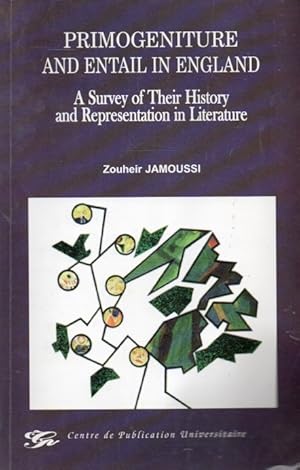Synopsis
This book examines the history and literary representation of one of the most idiosyncratic aspects of English socio-economic history, namely primogeniture as a rule governing the succession to landed estates. This double approach roughly covers the 17th, 18th and 19th centuries. Although this inheritance custom usually made the elder son sole heir to the whole paternal estate, to the exclusion and sometimes the utter impoverishment of the other children, and was therefore denounced as unjust and against nature, it also had its unflinching supporters. Indeed there was enough weight in the socio-political arguments of the latter to explain why this custom continued to dominate English social life for so long. This fundamental contradiction was at the heart of an ideological debate in which the plight of younger sons and the relationship between the individual, the nuclear and patrilineal family were among the issues permanently discussed. Neither were these issues the only hotly debated primogeniture-related questions. Indeed there was not one major economic, social and political development throughout the period examined to which primogeniture and entail did not directly or indirectly relate. The survey of the ideological debate on primogeniture and entail undertaken here is, to our knowledge, unprecedented. Moreover, primogeniture and entail were perceived by playwrights and novelists as a major cultural phenomenon and treated as such. The overview of their literary representation attempted here is, we believe, also unprecedented. As may be expected, emphasis throughout this book is laid on the interaction between history and literature.
Review
"This book will come as a pleasant surprise to those who have long pondered the influence of inheritance customs on English society. For some unexplained reason, English historians are rarely drawn to investigate them. The last considerable volume to be published in England on this score appeared over twenty years ago, in 1978 ... and had a broader scope than England alone. So this book is special, and in more ways than one. [The author] brings a fresh eye to the scene from a different cultural tradition." -Joan Thirsk, Reader Emeritus in Economic History, Kellogg College, Oxford (Literature and History 10, 2 (2001): 98-99) "The history of primogeniture and entail in England, to say nothing of Scotland, is, unsurprisingly, complicated... It is to Zouheir Jamoussi's credit that, while devoting almost half his book to describing and explaining this contorted history, he never allows these complexities to overburden what is his real concern, the cultural impact of primogeniture." -Allan Ingram, Professor of English Literature, University of Northumbria (British Journal for Eighteenth Century Studies 27, 1 (2004): 140-1)
"About this title" may belong to another edition of this title.
